Reform of the Justice Sector: A Continuing Commitment of the 9th Constitutional Government

“One of the priorities of the 9th Constitutional Government is to carry out a profound reform of the justice sector,” as established in its Government Program. The Executive considers that “the fragility of the justice system can jeopardize the very construction of the State and the economic and social development of the nation”, and therefore the reform of this sector is assumed as an urgent and strategic priority to guarantee an effective and accessible judicial system. In its Program, the executive also states that “it is therefore the objective of this Government to initiate a profound reform of this institution, which will take time, given its complexity.”
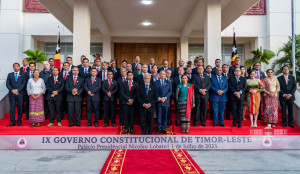
In his speech at the inauguration of the 9th Constitutional Government, on July 1st, 2023, the Prime Minister, Kay Rala Xanana Gusmão, made one of his government's major commitments “to implement the reform of the justice sector (by creating the Supreme Court of Justice and training judges and prosecutors to the highest standards)”. 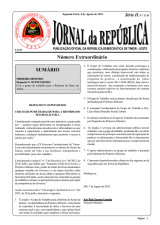
”. In this context, and with the aim of responding to the urgent need for effective reform, the Justice Sector Reform Working Group was created in August 2023, under the leadership of former Justice Minister Lúcia Maria Brandão Freitas Lobato. The group was established to “provide the government with an agile structure that, with equidistance, is the focal point with all the entities that make up the Justice Sector”. 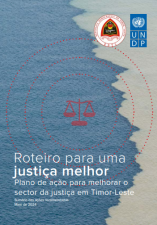
Less than a year after its creation, the Working Group published, in May 2024, the Report on the Justice Sector in Timor-Leste, entitled “Towards Better Justice: Analysis and Recommendations for Improving the Justice Sector in Timor-Leste” and the “Roadmap for Better Justice - Action Plan for Improving the Justice Sector in Timor-Leste”.
The report aims to identify the main challenges facing the national justice system and present a detailed analysis of the critical points, proposing concrete actions to improve the performance of the judicial system. The roadmap complements the report by offering a strategic action plan, with an implementation agenda, which highlights the priority actions and the timeframe for implementing the reforms. The methodology used to draw up the documents included an exhaustive review of previous diagnoses, consultations with stakeholders in the justice sector, and a systemic approach that recognizes the interdependence between the various institutions in the justice sector. The report also offers practical recommendations and viable solutions, aligned with the country's capacities and reality, promoting a gradual path towards the realization of the necessary reforms. 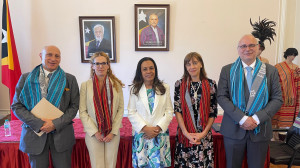
In June 2024, in Portugal, in the presence of the Coordinator of the Working Group, the Government signed five cooperation protocols with some of the main Portuguese law schools, with the aim of sending 50 law students every year for the next five years for specialized training in Portugal. This scholarship program aims to train 250 to 300 lawyers by 2028, with a total investment of approximately 16 million dollars. In August 2024, the first 51 scholarship holders left for Portugal, marking a significant step in strengthening human resources for the Timorese justice sector. 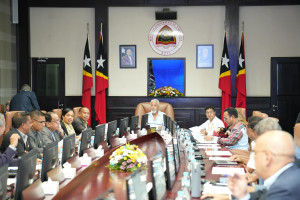
At the Council of Ministers on June 19th, 2024, the draft Decree-Law for the first amendment to Decree-Law no. 10/2020 was approved, with the aim of modernizing the training regime of the Centre for Legal and Judicial Training (CFJJ). The proposed changes aim to transform the CFJJ into a center of excellence for the training of magistrates and public defenders, with a strong investment in the quality of training, with a focus on practical training and mastery of the Portuguese language.
At the meeting of the Council of Ministers on December 4th, 2024, the draft Law Proposal for the first amendment to Law no. 1/2017, which establishes the Transitional Regime for the Recruitment of Non-Timorese Magistrates and Public Defenders, was approved. The aim of the proposal is to guarantee the continuity and quality of the administration of justice by strengthening the professional staff in the sector and adapting the recruitment system to the current reality and needs of the country. This proposal was voted on and approved by the National Parliament last February. 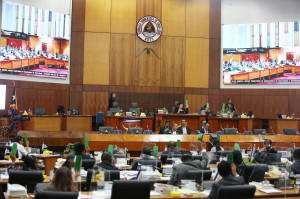
The reform of the justice sector in Timor-Leste is an ongoing and complex process, but it is essential in order to guarantee a fair and efficient judicial system that strengthens peace and democracy in the country. The Government, through the Justice Sector Reform Working Group and the Ministry of Justice, in collaboration with various national and international institutions, is actively working to implement a swift, transparent and accessible judicial system, with a special focus on training human resources and strengthening legal infrastructure. International cooperation, continuous training and the modernization of institutions are fundamental to achieving, as stated in the Government Programme, the “consolidation of an effective justice system, where the processes through which it is applied are swift, balanced, reliable, independent and fair”. END
Consult “Towards Better Justice: Analysis and Recommendations for Improving the Justice Sector in East Timor”, on the Government Portal, via the following link:
https://timor-leste.gov.tl/wp-content/uploads/2025/02/Relat%C3%B3rio1.pdf
*
Consult the “Roadmap to Better Justice - Action Plan to Improve the Justice Sector in Timor-Leste”, on the Government Portal, through the following link:
https://timor-leste.gov.tl/wp-content/uploads/2025/02/Roteiro19.pdf










































